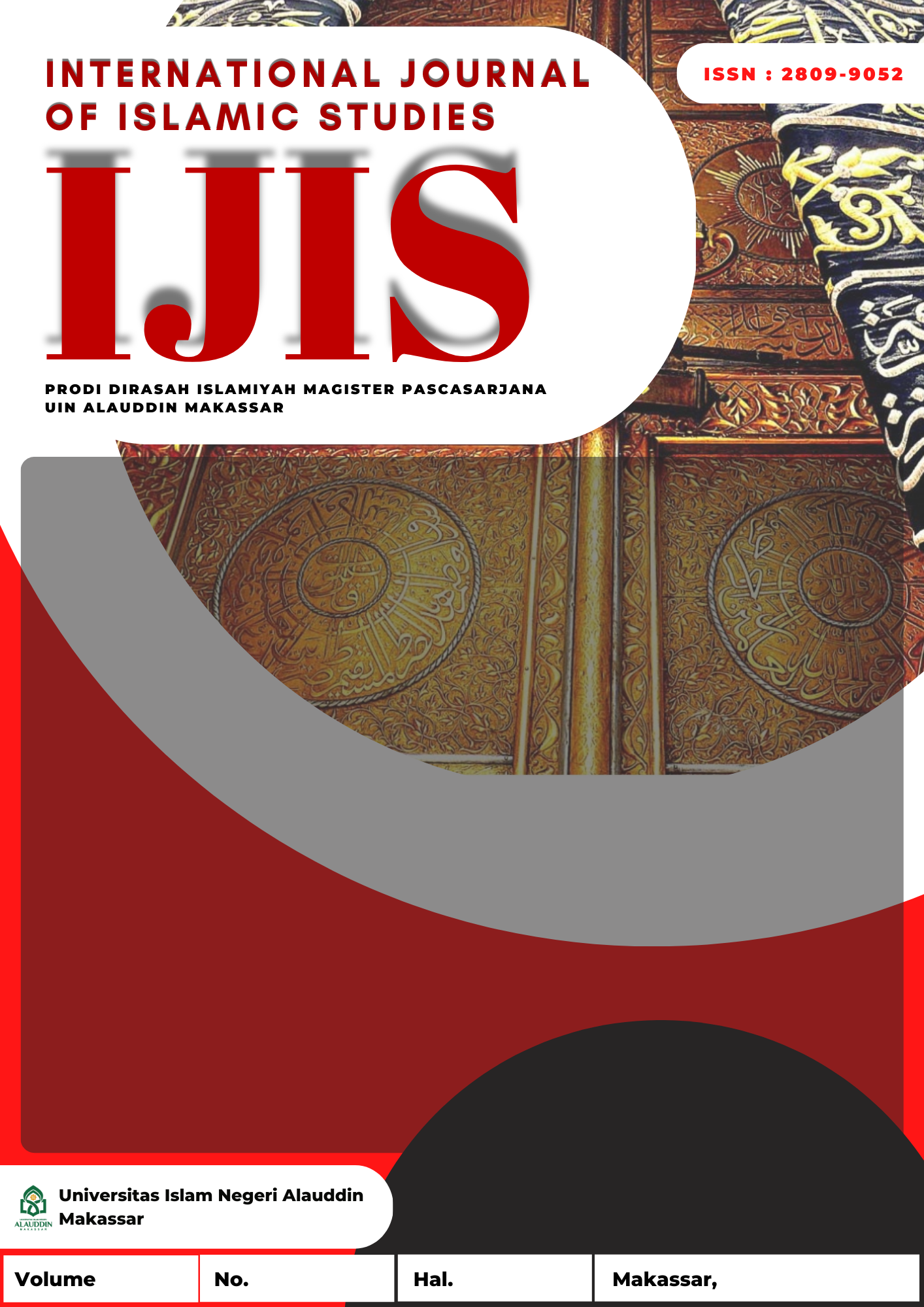ARABIC ETHNIC SOCIAL LIFE IN PAMBUSUANG VILLAGE, BALANIPA DISTRICT, POLEWALI MANDAR REGENCY
Abstrak
This study examines the social life of Arabic ethnic in Pambusuang village, Balanipa sub-district, Polewali Mandar district. This study aims to analyze and describe the influence of Arabic ethnic in Pambusuang. This study is qualitative field research using historical, sociological, cultural anthropological, and political approaches. This study carried out the heuristic steps or data collection by conducting observation, interviews, and documentation. After the data is obtained, the researcher undertook the source criticism, interpretation, and the stages of doing historiography. The results of this study found that: 1) The arrival of Arabic ethnic who settled in Pambusuang went through three stages. The first stage was in the seventeenth century, marked by the arrival of Sheikh Al-Adiy, the arrival of Sayyid Bollo marked the second stage, and the third stage was marked by the arrival of Sayyid Alwi bin Sahl Jamallahil. 2) The Arabic ethnicity banned the marriage between Sharifah and Ahwal. They assimilated with the local communities and tried to connect with rabitha Awaliyah so they could be able to detect any members of a non-sayyid group but claimed themselves as a sayyid, and 3) During the period as a part of Pambusuang society, Arabic ethnic had given much influence in the fields of da’wah, education, and politics.
Referensi
Algadri, Hamid. Islam dan Keturunan Arab dalam Pemberontakan Melawan Belandai.
Arif, Syamsuddin. Jaringan Pesantren di Sulawesi Selatan (1928-2005). Badan Litbang dan Diklat Kementerian Agama Republik Indonesia, 2008.
Azra, Azyumardi. Jaringan Ulama Timur Tengah dan Kepulauan Nusantara Abad XVII dan XVIII.
Bodi, Idham Khalid. The Role of the Arab Descendants in Islamic Preaching and the Development of Religious Education in West Sulawesi: Tracing the Significance of the Role and The Their Impacts on the Development in Polewali, Mandar Herigate of Nusantara International Journal of Religious Literature and Heritage, 2018.
Bosra, Mustari. Tuangguru, Anrongguru, dan Daengguru: Gerakan Islam di Sulawesi Selatan 1914-1942. Disetasi Universitas Indonesia, Depok; 2003.
Dzaky, Abah. Mengenal S. Mengga Alattas (Puang Mengga) https://mjtarhim.com/2015/08/16/mengenal-mayjen-s-mengga/amp/ (diakses 20 Juni 2022)
el-Maknun, Sahabuddin A. Pesantren Nuhiyah Pambusuang (Suatu Studi tentang Peranannya dalam Masyarakat di Kabupaten Polewali Mandar). Ujung Pandang; IAIN Alauddin. 1986.
Hafid Rosdiana. Keberadaan Syekh Jamaluddin Akbar Al Husaini di Kabupaten Wajo Provinsi Sulawesi Selatan. Balai Pelestarian Nilai Budaya Sulawesi Selatan, 2018.
Haryono, Muhammad. Peranan Komunitas Arab Dalam Bidang Sosial-Keagamaan di Betawi 1900-1942. Skripsi UIN Syarif Hidayatullah Jakarta, 2015.
Idham, dkk, Varian Khazanah Keagamaan. Makassar; Balai Penelitian dan Pengembangan Agama Makassar, 2018.
Idham. The Meaning of Logogram of West Sulawesi. Yogyakarta: Zada Hanifa, 2009.
Ikatan Keluarga Besar Habib Alwi bin Sahl Manaqib Habib Alwi bin Abdullah bin Sahl (Puang Towa). Bonde Campalagian 2014.
J. Burhanuddin. Diaspora Hadrami di Nusantara, Studian Islamika 6 (1). 2014.
Jannah, Nurul. Orang Arab di Nusantara. Sejarah dan Pemikiran Serta Kontribusi Bagi Bangsa Indonesia) https://www.researchgate.net/publication/347913449.
Jonge, Huub de .Mencari Identitas Orang Arab Hadhrami di Indonesia (1900-1950). Cet. 1 Jakarta. PT. Gramedia 2019.
L.W.C Van Den Berg Orang Arab di Nusantara. Cet. II, Jakarta; Komunitas Bambu 2010.
Selayang Pandang Kabupaten Polewali Mandar. Kantor Pengolahan Data Informasi dan Kearsipan (PDIK) Polewali Mandar, 2005.
Tamsil. Sejarah Pendidikan Islam di Pesantren Nuhiyah Pambusuang Desa Pambusuang Kecamatan Balanipa Kabupaten Polewali Mandar. Tesis Program Pascasarjana Universitas Islam Negeri Alauddin Makassar, 2012.
U. Freitag. Chapter One Reflection on the Longevity of Hadhrami Diaspora in the Indian Ocean, In the Hadhrami Diaspora in Southeast Asia. 2009.
Zulkarnen. Diaspora Masyarakat Keturunan Arab di Jakarta, Jurnal Al-Ahzar Indonesia Seri Humaniora, 2018.
Authors who publish with this journal agree to the following terms:
1) Authors retain copyright and grant the journal right of first publication with the work simultaneously licensed under a Creative Commons Attribution License that allows others to share the work with an acknowledgement of the work's authorship and initial publication in this journal.
2) Authors are able to enter into separate, additional contractual arrangements for the non-exclusive distribution of the journal's published version of the work (e.g., post it to an institutional repository or publish it in a book), with an acknowledgement of its initial publication in this journal.
3)Authors are permitted and encouraged to post their work online (e.g., in institutional repositories or on their website) prior to and during the submission process, as it can lead to productive exchanges, as well as earlier and greater citation of published work (See The Effect of Open Access).







